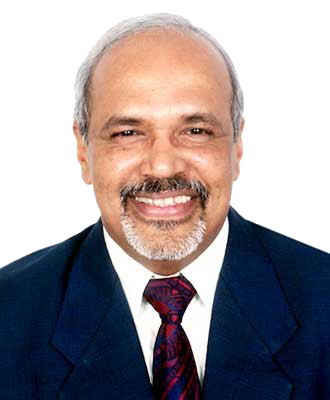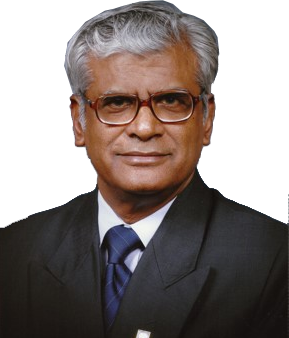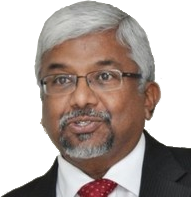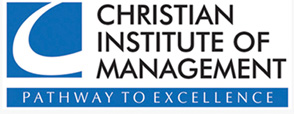Fully Online
Each of the 13 courses offered are fully online and can be completed in 1 month.
Expert Faculty
The faculty of each course is an expert, with hands-on experience on the subject.
Total Fee
The total fee for each 1-month purely online course is Rs 2,360 Rs 1,180 (incl. GST)
NPO-Centric
Each course is designed to cater to the management needs of Churches / Missions / NPOs
Online Features

Video Lectures
Each course contains professional recorded video lectures by the faculty

Digital Study Materials
PPTs and Online Reading Material is provided for each of the units of the course

Webinars
Interactive webinars with the faculty will be conducted.
(for select courses only)

Quizzes
Quizzes for each of the courses will be through the online learning platform itself.
Mode of Delivery
- There are 13 courses, out of which learners can select a course/s of their choice. The duration of a course is for 1-month. A grace period of 15 more days will be available for the learner to complete the requirements.
- Upon online registration and payment of fees, the participants would be added to the online platform and the user id and password for log – in would be given.
- Each course is divided into four units, which will contain learning materials (study material, video lectures of the faculty, and PowerPoint). The participants can log – in with their user id and password and access the learning materials.
- The learners can undergo online test (objective type) at the end of each course.
- As this is standalone online course, that can be taken up at any time, there will be no live sessions, as all the lectures are pre-recorded and delivered for easy, bite-sized learning.
Certification
Christian Institute of Management would award a digital certificate on successful completion of the course, to those who wish to apply for the certificate.
Evaluation
Participants can attempt the Multiple Choice Questions and check their answers, through the Quiz activity given at the end of each Unit.
Fee
The total fee, including GST is Rs 1,180.
Available Courses
 Mr Julius Sathiaseelan
Mr Julius Sathiaseelan Mr J S Anbu
Mr J S Anbu- To impart Biblical Perspective of Management
- To analyse the role, purpose and importance of Christian organisation in the kingdom of God
- To enhance the leadership skills for effective management
- Christian Organization and the Kingdom of God
- Purpose and Importance of Christian Organizations
- Vision, Mission and Core Values
- The Christian Perspective
- Concept of Management
- Management Thinkers and Biblical Principles
- Managerial Skills
- Principles of Christian Management
- Fayol’s Principles of Management
- Planning
- Decision Making & Discernment
- Organizing
- Staffing
- Coordination & Control
- Biblical Images of Leadership
- Team Leadership
- Attitude
- Submission to Authority

CA Manju George
Course Objectives:
- To discuss the NPO sector
- To illustrate the formation of NPOs in India
- To analyse the FCRA and IT Act as applicable for NPOs in India
- Meaning
- NPO Concepts – Charity, Donation & Volunteerism
- NPO Sector in the World
- NPO Sector in India
- Forming an Organisation
- Society (Societies Registration Act 1860)
- Trusts (Indian Trust Act 1882)
- Company (Indian Companies Act 2013)
- Introduction (including PAN & TAN)
- Applicability & Coverage
- Exemptions
- Conditional Exclusions
- Business & Reporting
- Tax Deduction at Source
- Introduction & Coverage
- Registration
- Renewal
- Penalty
 Mr Wilfred Davidar
Mr Wilfred Davidar- To elucidate the different aspects of the Strategic Management
- To develop capabilities to analyse changing situations and develop solutions
- To learn effective execution of strategies
- Introduction to Strategic Management
- Meaning of Environment Scanning
- SWOT Analysis
- Emerging Ministry Context
- Meaning of Strategy
- Types of Strategies
- Strategy Formulation
- Strategy Execution
- Challenges in Execution
- Developing Execution for Results
- Building Blocks of Execution
- Core Processes of Execution
- Lemon Leadership for Effective Execution
- Introduction
- Managing Resistance to Change
- Leading Major Change
- Creativity & Innovation

CA Abraham Zachariah
- To develop Biblical understanding relating to management of financial resources
- To equip to handle financial resources effectively
- To enable development of right financial systems for ministries
- Stewardship & Accountability
- Financial Management
- Cash Management
- Banking Operations
- What is Budget
- Budgetary Control
- Types of Budget
- Performance Budgeting in Non – Profit Organisations
- Internal Control & Procedures
- Areas of Internal Control
- Meaning of Audit
- Types of Auditing
- Preparation for the Audit
- Audit Report & Follow up
- Non- Financial Audit – Impact Assessment
- Financial Information System
- Analysis of Organisational Performances based on Financial Information
- Ratio Analysis
- Reporting

Mr Joy Christian
- To understand the concepts of Human Resource Management
- To make use of the potential of Human Resources more effectively
- To ensure the balanced use of Human Resources to fulfill the individual, organizational and societal objectives
- Biblical Perspective of Human Resource Management
- Evolution of HR
- Unique values of HR
- What is HRM?
- Managerial and Operative Functions of HRM
- Digitalized HR
- Human Resource Planning
- Job Description and Specification
- Recruitment and Selection
- Orientation and Induction
- Transfer, Job Enrichment, Job Rotation, Promotion
- Biblical Perspective of Training
- Exploring the training needs
- Various training and development interventions
- Training the Trainers
- Evaluation Mechanism
- Biblical Perspective of Compensation and Performance Evaluation
- Job Evaluation Methods
- Performance Appraisal Methods
- 360 degree Method
- Evaluation Mechanism for the Missionary Workers
- Salary – Meaning, Types and basis

Mr Lawerence Mangalrajan
- To understand the basic concepts of Project Management
- To gain working knowledge and application of the various tools used in Project Management
- To be able to take up live case, develop a project plan, execute the plan, and evaluate it.
- What is a project?
- Characteristics of Project
- What is Project Management?
- Approaches to Project Management.
- Project Life Cycle.
- Biblical Perspective of Project Management
- Identifying Opportunities and Need
- Assessment & Defining the scope of a Project
- Metrics – Indicators and Standards
- Resource planning
- Risks & Assumptions
- Log Frame
- Project Proposal
- Implementation
- Monitoring
- Introduction to Evaluation
- Different Methods of Evaluation
- What makes a good evaluation
- Approaches to Evaluation
- Project Review
- Reflection & Transition
- Creating a Culture of Learning

Mr Shekhar Shukla
- To understand the complexity of communication
- To know the foundational importance of character
- To enhance the ability to make effective presentations
- To harness media in communication for global impact
- Introduction
- Verbal & Non-verbal
- Written
- Listening skills
- Obstacles
- Foundational habits of effective communicators
- Body-language
- Walk-the-Talk
- Preparation & Practice
- KISS principle
- Tone
- Purpose centric
- First impression
- Story telling
- Sense of humour
- Communicating for impact
- Holding attention of the audience
- Flexibility
- Concluding effectively
- Enormity of media for impact
- Visuals
- Language of the millennials
- Speed of change

Mr PKD Lee
- To develop skills in different aspects of Fund Raising
- To be able to design a Fund Raising strategy for an organization
- To have a h5 Biblical Basis in Fund Raising and Accountability
- Is fund raising Biblical
- Why should we raise funds in India
- Understanding Biblical Stewardship
- Fund raising as confidence building
- Three fold approach to fund raising
- The emotive (heart centered) approach
- The head centered approach
- The charismatic approach
- Levels of communication
- Sharing the vision effectively
- Developing charisma through communication
- Sharing to the heart
- Designing the mailings
- Making the pitch
- Ethics in fund raising
- Ethical communication
- Accountability systems
- Designing Boards

Mr Samuel Johnson

Mr Reeves Wesley
- To synthesize skills and knowledge from Information Technology into an innovative technology solution for Ministry.
- To prepare the learners to work as a professional, especially as a independent Technology user in the Digital World.
- To develop the ability to take Decisions, solve problems with minimal assistance and cost.
- To develop organizational systems having sustainable and scalable models using IT.
- Definition & Need for MIS & IT
- Information for Planning, Implementation & Control
- Integration of Technology in Ministry
- Open Source tools in IT
- Information Technology for Internal Transformation (IT 4 IT)
- Introduction to IoT
- Use of Wireless and mobile networks in Ministry
- Online measurement tools
- Type of information
- Statistical methods used in estimation of information
- Sensitivity analysis of the information
- Risk and uncertainty elements
- Quantification of quality information
- Cost and value of information and Decision making.
- Functional Areas (Top Management, Middle level Management, Lower level or operative Management
- Analysis
- Evaluation of IT
- Scalability of Technology for Systems

Mr Jaywant Michael
- To study the behaviors of individuals and groups working in organizations
- To apply the learning to improve an organization’s effectiveness.
- Organizational Behavior Overview and Biblical Perspectives
- Organizational Structure and Organizational Behavior models
- The Individual and Organizational Behavior
- Personality
- Self concept
- Perception
- Leadership Models
- Motivation
- Leadership competencies for organizational effectiveness
- Group Dynamics
- Decision Making
- Organizational Culture
- Conflict Management
- Stimulating innovation and change
- Organizational Development
- OD Interventions
- Stress Management

Dr (CA) Sanjay Patra
- To develop an understanding on the concept of Governance with special reference to NPOs
- To discuss the various roles and functions of Governance
- To facilitate an “improvement process” for Governance in the NPOs
- Meaning of Governance
- Definitions
- Corporate Governance
- Non Profit Governance
- Biblical perspective on Governance
- Vision Development and Strategic Planning
- Accompaniment to the Management
- Policy Making and Monitoring
- Responding to Accountability dimensions
- Best Practices
- Importance of financial management for Governance
- Components of financial management system
- Setting up high quality financial management system
- Governance structures for good financial management
- Ensuring proper legal compliance
- Studying the status of Governance
- Self appraisal of Governance performance
- Board Orientation and Board Retreats
- Identifying areas for enhancing the effectiveness
- A Governance improvement plan and follow up

Adv. B D Das
- To impart the rights and responsibilities of Christian workers in India as per its Constitution
- To be aware of labour laws as applicable for NPOs
- To understand the personal laws
- The Indian Constitution
- Fundamental Rights
- Minority Rights
- Human Rights
- Right to Information (RTI) Act
- RTE (Right to Education) Act
- Indian Christian Marriage Act 1872
- Special Marriage Act 1956
- The Indian Succession Act 1925
- The Divorce Act 1869
- Adoption
- Provident Fund Schemes
- Payment of Gratuity Act, 1972
- Employee State Insurance Corporation Act 1948
- Minimum Wages Act, 1948
- Procedure for Disciplinary Action
- Service Rules
- Policy on Sexual Harassment
- Sale of Immovable Property
- Mortgage of Immovable Property
- Lease of Immovable Property
- Gift of Immovable Property
- Transfer of Property from Trust to Trust

Dr Gary Hoag
Course Objectives:
- Suggest practical ways to help those you serve become good and faithful managers for God.
- Explain four biblically-informed contrasting principles linked to resource management; teamwork, collaboration, and succession; governance and accountability; and legal compliance.
- Summarize the kingdom path in contrast to the common path as God’s design for management to contribute to organizational and community flourishing.
- God’s Design in Genesis – Model: Stewards of God
- God’s People in the Old Testament – Model: People of God
- God’s Son in the Gospels – Model: Son of God
- God’s Church in the New Testament – Model: Church of God
- Resource Mobilization – Moses, David, James, and Paul
- Teamwork and Succession – Moses and Joshua, Elijah and Elisha, Jesus with the Disciples, and Paul and Timothy
- Governance and Accountability – Council of Moses, Jewish Council of the First Century, Council of Ephesus, Council of Jerusalem
- Structures and Systems for Scaling – Levites and Priests, Apostles and Prophets, Elders and Deacons, and Pastors and Teachers
- Resource Management – Accounting, Allocation, Generosity, Service
- Teamwork and Succession – Delegation, Empowerment, Relationships, Honor
- Governance and Accountability –Character, Standing, Faithfulness, Peers
- Legal Compliance – Submission, Respect, Humble, Policy
- Relationship to God – Steward, Prayer, Vision, Faith
- Relationship to Ourselves – Self-controlled, Honest, Humble, Teachable
- Relationship to Others – Serve, Listen, Delegate, Report
- Relationship to Creation – Work, Common Good, Sustainability, Legacy
